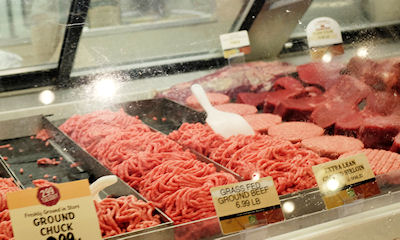
Canada and Mexico this week will meet with WTO officials to make a determination on the status of their retaliation request as it relates to the U.S. Country of Origin labeling law, a Canadian meat industry official and Mexican Embassy official said Tuesday.
The representatives, Kenneth Smith Ramos, representing the Embassy of Mexico, and John Masswhol, representing the Canadian Cattlemen's Association, joined with NPPC Outside Trade Counsel David Bond and former chief of staff to the U.S. Secretary of Ag and now industry consultant Randy Russel to discuss next steps on COOL during a press conference in Washington, D.C.
The WTO appellate body last month ruled against the U.S. appeal of its initial decision that the COOL rule violates technical barriers to trade. Both Canada and Mexico were quick to consult with the WTO after its decision, last week settling on a figure of about $3.7 billion in retaliatory measures.
All speakers on the panel said time is running out to find a solution to the COOL issue as retaliatory tariffs could appear as soon as the end of August. Those tariffs may be placed on a variety of products, like meat, produce, live animals and even wooden office furniture.
Though each of those items appears on a list provided by Canada, Smith Ramos said Mexico has yet to finalize a list, but will do so "shortly."
The list will include "strategic" export choices, he said, and will include exports that reflect "where pressure can be exerted to generate change."
It also may focus on the top 10 export items from all 50 states, he said.
To avoid retaliation, legislation already has been approved by the U.S. House to repeal the rule. It is supported by all panelists.
Bond explained that the legislation is welcome because time is running short to take action; WTO has made its final decision on COOL being a technical barrier to trade.
Related: Country of origin labeling fix needed soon
Next steps include determining Canada and Mexico's final value for retaliatory measures. When that is finalized, Bond said, the countries may continue that retaliation until they are happy with changes made by the U.S. on the rule.
If Canada and Mexico continue the retaliation, the U.S. may ultimately file a dispute against it with the WTO, Bond explained, which could be costly.
"That's the real risk here," he said. "Congress doesn't really have the luxury of doing a half-fix. At this point our option is to make Mexico and Canada happy."
According to previous statements from the two countries, which are the United States' top trading partners, the only option to avoid retaliation is to institute a full repeal of COOL for beef, pork and poultry.
About the Author(s)
You May Also Like




